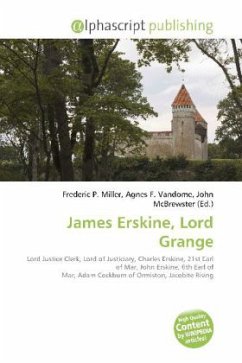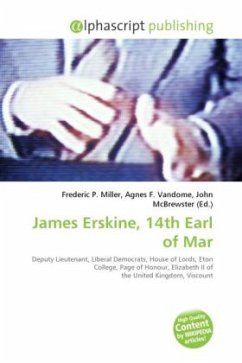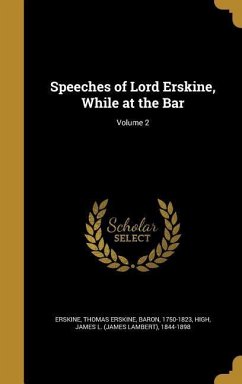Please note that the content of this book primarily consists of articles available from Wikipedia or other free sources online. James Erskine, Lord Grange (1679 20 January 1754) was Lord Justice Clerk and a Lord of Justiciary. The son of Charles Erskine, Earl of Mar, by his spouse Lady Mary, eldest daughter of George Maule, 2nd Earl of Panmure, he was also brother of John Erskine, 6th Earl of Mar. Educated as a lawyer he was raised to the bench on 18 October 1706. He was nominated a Lord of Justiciary in place of Lord Crocerig on 6 June the same year, and took the title Lord Grange. On the 27 July 1710 he succeeded Adam Cockburn of Ormiston as Lord Justice Clerk. He took no part in the rising of 1715, although there is little doubt that at times he was in communication with the Jacobites; but was rather known for his piety and for his sympathy with the Presbyterians. In 1724 he, and David Erskine, Lord Dun purchased the forfeited Earldom of Mar from the government, which they promptly reorganised, and sold off. He is more famous, however, owing to the story of his wife''s disappearance.
Bitte wählen Sie Ihr Anliegen aus.
Rechnungen
Retourenschein anfordern
Bestellstatus
Storno








